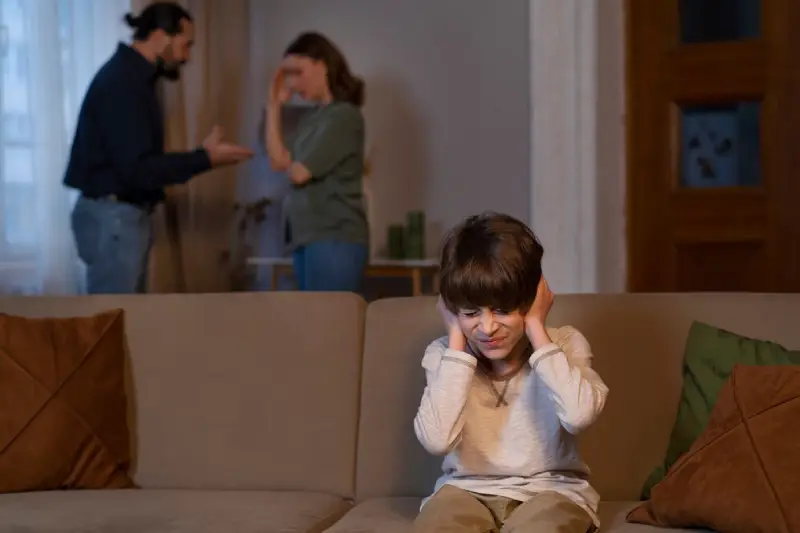Self-esteem, in simple words, is how one feels about oneself. How a person perceives themselves and their abilities speaks volumes about their self-esteem. A person with high self-esteem is confident, optimistic, and holds oneself in high regard. On the other hand, a low self-esteemed human is more inclined towards pessimism, doubts themselves, and is under-confident. Now, you must be keen to know what role parents play in moulding their children’s self-esteem. Let’s dive deep into parenthood and how it affects one’s self-esteem.
Significance of parenting in building or damaging children’s self-esteem

Parenthood or parenting is a very complex and long journey in a person’s life. Parenting shapes the personality of the child. Excellent and positive parenting can do wonders in the child’s upbringing, providing them with strong values and an elevated sense of self-esteem. However, hostile parenting can ruin them. It can impair their confidence and how they view themselves, their environment and situations. Parents often don’t even realize they are destroying their offspring’s confidence. There are various ways parents harm their children’s self-esteem. They are so common; you will be surprised to find out that maybe you are doing some of these things, too, and you probably didn’t even know it.
1. Criticizing
When you constantly criticize your children or judge them for their mistakes. It leads to them feeling worthless and incompetent. They become more cautious about everything they do and develop a fear of judgment. Their confidence goes downhill, and they become highly defensive.
2. Being emotionally unavailable
When a parent is emotionally unavailable, the children either develop their defensive mechanism and convince themselves that they do not need to feel emotions and become cold, or they start feeling unlovable and crave validation from everyone to fill the emotional void their parents failed to fill. Both cases can lead to low self-esteem and psychological issues.
3. Unrealistic expectations
As humans, everyone has expectations in life. It becomes wrong when you force your expectations on your children and expect them to fulfil your idea of success. Suppose you lay unrealistic expectations on your children. In that case, it leads to the development of extreme fear of failure, stress, anxiety, and a constant need to attain perfection, leading to emotional distress and the feeling of never being enough. All of this affects their self-esteem negatively.
4. Being overprotective
When you are overprotective, you make your childre highly dependent on you. You become an obstacle in their self-growth and development. Such children have to deal with low self-efficacy and oversensitivity. Overprotection impacts their social life very negatively.
5. Comparison
Constant comparison of children with their peers is prevalent practice among parents. You need to realize that every child is different. Their background, upbringing, and personalities are different too. You cannot compare and demean your child for scoring lesser marks than their peer or for not being as good as their friend is. Your child is unique, and they might be the best at something else. Hence, comparing and expecting your child to do the same as their peers is unfair. It leads to depression, a feeling of unworthiness and low self-confidence. They grow jealous of people and eventually develop poor self-image.
6. Invalidating your child’s feelings
Invalidating and ignoring your child’s feelings leads to developing feelings of self-doubt and indecisiveness. The child later faces psychological issues like depression and anxiety. When you say things like, ‘Don’t be such a crybaby’ and ‘Stop overreacting’, you cease them from processing and understanding emotions, limiting their viewpoint and making them feel guilty about expressing their feelings.
7. vacy
When a parent is nosy and doesn’t provide their child with privacy, especially when they become teenagers, children become rebellious and start lying to their parents. They feel that their parents don’t trust them and face mental health issues like anxiety and depression, along with low self-esteem.
8. Labelling
Parents often label their children as ‘shy’, ‘restless’, ‘clumsy’, or ‘absent-minded’, affecting how children view themselves. By labelling, you are inhibiting their self-growth, leading to the feeling of inferiority. They feel confined to the label given to them, and the scope of exploring their true selves declines.
9. Making all the decisions for your child
When you don’t allow your child to make their own decisions, they will grow up to become very irresponsible and indecisive. When one makes decisions for oneself, one develops self-confidence. Allowing your child to make their own decisions implies that their opinions matter, adding value to their self-worth. By making their own decisions, they become independent and accountable. Not allowing them to do so hinders their growth and negatively impacts their self-esteem, making them dependent on others and always finding someone to blame for the outcome.
10. Giving up on the child
Parenting is not easy, and the frustration that comes with it is very understandable, but giving up is not a viable option. By giving up and losing hope in your child, you are making them lose faith in themselves. They feel depressed, hopeless, and insecure, and eventually, they give up on themselves, too. Instead, try to understand your child and try a different method to handle the situation. If you need to learn how to solve the issue, seek help from a professional.
Effects of Negative Parenting

Parents often wonder what they did wrong when children distance themselves from them after growing up. But parents always fail to look back and realize that this is the consequence of their actions. After attaining maturity, children eventually start reacting. Hostile parenting impacts their personality immensely. Earlier, we discussed and learnt how parents can damage their children’s self-esteem. By acting in such a negative manner, your child starts losing faith in you; they start lying and distancing themself. They feel burdened, caged and gloomy. With damaged self-esteem, children start hating themselves. No wonder they try to find validation, love, and affection from the outer world, and often, they do so in an unhealthy manner. Such children usually suffer from mental health issues and sometimes severe psychological problems. And their relationship with their parents grows very dysfunctional and unstable.
Guide to positive parenting and building your child’s self-esteem
- Parents are the first role models in every child’s life. The way you act and behave not only with your child but also with others affects the child significantly. How you cope with your emotions, what you do every day, and even your mannerisms highly influence your child. So, the first step you can take is to become the best role model for your child. Being your best self brings out the best in your child.
- Be optimistic and patient. Have a positive attitude and spread positivity around you. Being calm, patient, and positive will help your child stay motivated and fearless, positively impacting their self-esteem.
- Learn to apologize when it is your fault. When you take accountability for your actions and become humble enough to apologize and accept your mistakes, you teach your kids that it is okay to make mistakes, accept them and move forward.
- Building positive body image and encouraging your kids to be authentic will boost their confidence immensely. The child will start loving themself. They will become comfortable being who they indeed are. Teaching them that they are perfect the way they are, will build their self-worth.
- Teach them to become independent and allow them to make their own decisions. This will strengthen and develop your child’s self-dependence, positively impacting their creativity, thinking, and decision-making abilities.
- Motivate them to explore their interests and skills. Your child will be able to discover their likes and dislikes and have an opportunity to find their purpose and passion. It will give them a sense of belongingness, confidence, and happiness.
- Talk to your children and spend quality time with them. By doing this, you are showing your children that you care about them. They will feel secure and loved. Your bond with your child will grow more robust, and you will understand each other even better.
- Instead of criticizing and blaming them, motivate them and teach them that it is okay to make mistakes. It is how you introduce an optimistic approach towards life to them. Children will grow up to learn from mistakes, and instead of being afraid and giving up, they will prefer trying again. You will raise your child to become a fighter instead of a quitter.
Conclusion
Parents play a significant role in the development of their children’s self-esteem. How you behave and converse with your child crucially affects the child’s personality development. Hence, parents need to adopt an upbeat parenting style to raise a child with high self-esteem and a strong personality. If you blame, criticize, neglect, compare and overprotect your child, you are destroying your child’s self-esteem, leading them to become dependent, fearful, paranoid, anxious, stressed and a pessimist. So, you, as a parent, need to understand the power your words and actions hold over your child. Try to become your child’s best friend, someone they can trust, look up to and come to in any situation. Please provide them with support, encouragement, motivation and the proper guidance. Parents must adopt an upbeat parenting style and create a healthy and nurturing environment forz their children. Doing this will cultivate high self-esteem in children.




